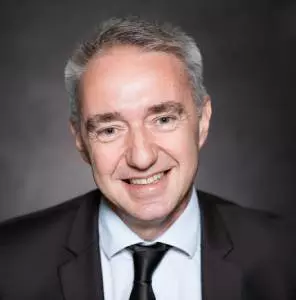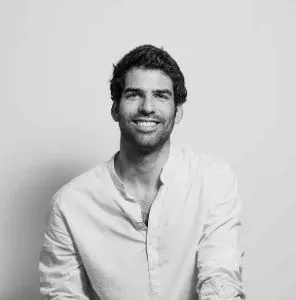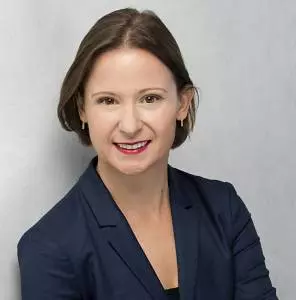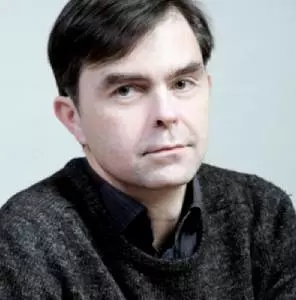After “Listen” (session # 1 on 14 September) and “Decide” (session # 2 on 12 October), session # 3, on 7 December at the REcyclerie in Paris, focuses on the theme “Train”. Once again, Veolia's 50 stakeholders are mobilizing around a common drive at the service of ecological transformation. A look back at the workshops of the previous session dedicated to converting listening into decision-making.

Session # 3 on 7 December on the theme “Train”: inventing the skills of tomorrow
If ecological transformation involves rethinking our ways of doing things, our modes of production and consumption and more broadly our lifestyles and our priorities, this shift is necessarily accompanied by an evolution of knowledge, know-how and interpersonal skills. So what are the “skills” of the future and how can we encourage them to emerge? These are the themes of session # 3 of the “+1, the ecology turned in actions” mechanism, which brings together the members of the “+1” collective this Tuesday, 7 December, at the REcyclerie in Paris.
Olivier Carlat, director of training and social development at Veolia and Matthieu Dardaillon, president and co-founder of Ticket for Change, will present their vision of the future know-how and interpersonal skills required by the ecological transformation. Five members of the “+1” collective, by category of Veolia stakeholders, will testify about their experience of the first two sessions as well as the challenges, in their opinion, of training in the implementation of the ecological transformation.


Feedback on session # 2 Decide
The aim of this second session is to try to understand how to better decide collectively, to succeed in creating value that is more widely shared, explained Fanny Demulier, Coordinator of the Steering Committee of the Purpose of Veolia, recalling that the desire to work in a less compartmentalized way is at the heart of this collective.
In fact, “the company of today - and even more that of tomorrow, we’d like to bet - does not act alone”, emphasised Anne Le Guennec, General Manager of the Recycling and Recovery of Waste France activities of Veolia.
For a long time, the circular economy and ecology were very individual gestures. The challenge today is to reconcile the civic gestures and the strategic choices of industry in order to respond collectively and effectively to the challenges of ecological transformation. We must help industrialists to produce better thanks to ecodesign, but also the citizen to sort and recycle better.
Doctor of neuroscience and science journalist Sébastien Bohler, explained that there is no such thing as a collective brain. The human being is good at collaborating on the technical aspects, but to decide collectively, it becomes difficult beyond a few people.
To achieve this, we must detach ourselves from the grip of our striatum, the organ of the brain which rewards our behaviour of consuming resources and emitting pollution with dopamine. [...] There is an urgent need to create new shared world views, [...], to make decisions with ‘less dopamine and more meaning.


Testimonials from participants of the +1 collective
Listening to all the stakeholders is very important, but without decisions behind it, the ecological transformation will not happen. The collective decision is a complex process because there are a lot of brakes. Our brains incline us to self-interest. What I found interesting with this methodology is that the experts told us about the subject upstream and this allowed us to facilitate the discussion and the flow of ideas, testified Marie de Penanros, CSR transformation and quality director ALD - Company stakeholder.
With this session we are trying to see how to collectively find a way to develop a complex but shared decision, explained Pierre-Emmanuel Reymund, Head of Territorial Innovation Partnerships Prospecting at Toulouse Métropole - Client stakeholder.
Here we need to decide for the general interest, and it is a real enrichment through meetings of people with varied profiles and very different ideals. In this context, we felt that we had to take this complexity into account in order to make the best possible decision, added Zoé Constantin, Impact Partenaires investment director - Shareholders stakeholder.
The decision is a collective dynamic, teamwork with people who think differently from us and who can be a source of inspiration, noted Xavier Leflaive, principal administrator of the OECD - Planet stakeholder.
To decide is to engage your ideas. It is also to be legitimate in the decisions for which we are accountable and which have a more or less significant impact. Here, we are ambassadors for ecological transformation. If everyone could leave with pieces of solutions and be able to distribute them, it would already be a first victory for the collective, concluded Abdelkhalik Zenati, head of the Veolia SARP department - Employee stakeholder.
After the intervention of the two experts and of 5 members of the “+1” collective (1 per category of stakeholders), the 50 participants split into sub-groups for a collective intelligence workshop. The challenge: to think long term while initiating change quickly. They imagined decision-making systems to overcome conflicts using 10 imaginary situations. Concrete solutions emerged from this detour through fiction, around five themes: how can we create the conditions for co-construction? How can we choose a course and stick to it together? Ecosystem vision: how can we identify interdependent relationships between stakeholders? How can we qualify the problem and the responsibilities? How can we get involved in the decision-making process?
The objectives of the +1 device
This consultation prototype initiated by Veolia, in partnership with Usbek & Rica and REcyclerie, and with the support of Comité 21, is a collective of 50 Veolia stakeholders (employees, customers, shareholders, society, planet), coming from different backgrounds, brought together to work collectively on the concrete implementation of the ecological transformation. This collective intelligence workshop uses design thinking to transform ideas and projects into concrete actions.
At the end of the three sessions, the results will be available in open source and shared within a deliverable, in order to make them operational and adaptable to other contexts, by all those who wish to be inspired by them. The desired impact is the impetus for working in a decompartmentalized way. This way of working together aims to broaden the ecosystem of the players involved and to confront different points of view in order to design and deploy solutions that are useful to as many people as possible.
For more information
Session # 2 DECIDE (12 October, 2021): report and press review (in French only) :


